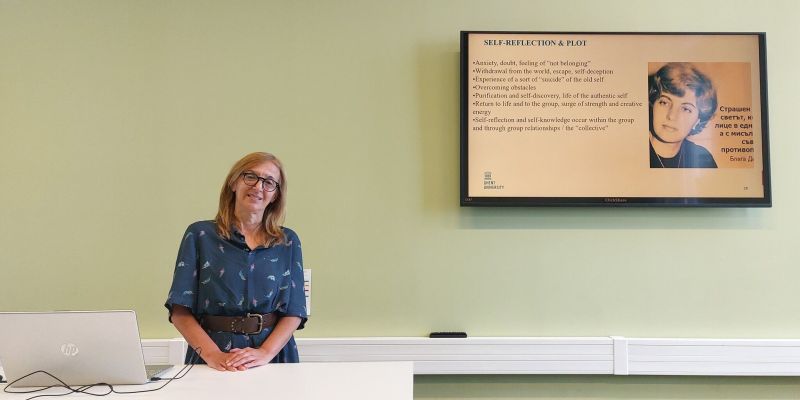NEWS & EVENTS

ENLIGHT Workshop Sparks Exchange and Discovery: Women in East European and Baltic Culture
Organised by Dr. Miglena Dikova-Milanova (Ghent University) in collaboration with Dr. Ksenia Kuzminykh (University of Göttingen) and Dr. Eret Talviste (University of Tartu), the workshop built on earlier initiatives by expanding its geographical and thematic scope. It explored how female-identifying figures have contributed to cultural and literary discourses while challenging established norms..
The programme featured a keynote by Dr. Kuzminykh on the role of women writers as agents of defiance in East European literature. Dr. Albena Shkodrova (KU Leuven) presented a unique perspective on how cooking and recipe sharing functioned as tools of identity and status among women in Communist Bulgaria. Brussels-based writer Rusana Bardarska contributed a compelling reflection on feminism and existentialism, blending personal insight with broader cultural critique.
Dr. Eret Talviste offered a thought-provoking keynote on shifting borders and identities in European modernism, followed by a presentation from Dr. Dikova-Milanova on women’s literary voices in Bulgaria during the late 20th century. The programme concluded with a collaborative discussion led by Dr. Kuzminykh and Dr. Talviste, joined by students, academic staff, and representatives from the City of Ghent. The conversation centered on gender representation, resistance, and cultural identity, encouraging an open and interdisciplinary dialogue.
The venue provided a comfortable and inspiring setting, supporting both formal presentations and informal exchanges. The workshop not only deepened scholarly understanding but also advanced ENLIGHT’s mission of building inclusive and collaborative spaces across European universities. It highlighted the importance of reexamining marginalized voices and laid the foundation for future partnerships across disciplines and institutions.